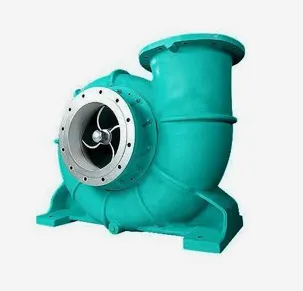English
- Afrikaans
- Albanian
- Amharic
- Arabic
- Armenian
- Azerbaijani
- Basque
- Belarusian
- Bengali
- Bosnian
- Bulgarian
- Catalan
- Cebuano
- Corsican
- Croatian
- Czech
- Danish
- Dutch
- English
- Esperanto
- Estonian
- Finnish
- French
- Frisian
- Galician
- Georgian
- German
- Greek
- Gujarati
- Haitian Creole
- hausa
- hawaiian
- Hebrew
- Hindi
- Miao
- Hungarian
- Icelandic
- igbo
- Indonesian
- irish
- Italian
- Japanese
- Javanese
- Kannada
- kazakh
- Khmer
- Rwandese
- Korean
- Kurdish
- Kyrgyz
- Lao
- Latin
- Latvian
- Lithuanian
- Luxembourgish
- Macedonian
- Malgashi
- Malay
- Malayalam
- Maltese
- Maori
- Marathi
- Mongolian
- Myanmar
- Nepali
- Norwegian
- Norwegian
- Occitan
- Pashto
- Persian
- Polish
- Portuguese
- Punjabi
- Romanian
- Russian
- Samoan
- Scottish Gaelic
- Serbian
- Sesotho
- Shona
- Sindhi
- Sinhala
- Slovak
- Slovenian
- Somali
- Spanish
- Sundanese
- Swahili
- Swedish
- Tagalog
- Tajik
- Tamil
- Tatar
- Telugu
- Thai
- Turkish
- Turkmen
- Ukrainian
- Urdu
- Uighur
- Uzbek
- Vietnamese
- Welsh
- Bantu
- Yiddish
- Yoruba
- Zulu
Telephone: +86 13120555503
Email: frank@cypump.com
Sep . 25, 2024 16:48 Back to list
sewer pump for basement
Understanding Sewer Pumps for Basements
When it comes to maintaining a functional and safe basement, a sewer pump can be an essential component of your home’s plumbing system. These pumps play a critical role in managing wastewater, preventing flooding, and ensuring that your basement remains dry and usable. This article delves into what sewer pumps are, how they work, and the benefits of installing one in your basement.
What is a Sewer Pump?
A sewer pump, often referred to as a wastewater pump, is designed to move sewage or wastewater from a lower elevation to a higher one, such as from a basement to the main sewer line. This is especially important in homes that are built below the level of the municipal sewer system, where gravity alone cannot facilitate drainage. Sewer pumps are typically installed in a sump pit, which collects water and waste from the basement.
How Does a Sewer Pump Work?
The operation of a sewer pump is relatively straightforward. When wastewater enters the sump pit, the pump's float switch is activated. This switch rises with the water level and triggers the pump to begin working. As the pump engages, it propels the sewage through pipes and out to the municipal sewer line or septic system. When the water level drops, the float switch deactivates the pump, conserving energy and preventing unnecessary wear and tear.
Types of Sewer Pumps
There are two main types of sewer pumps sewage ejector pumps and grinder pumps.
1. Sewage Ejector Pumps These pumps are designed to pump raw sewage from a lower elevation to the sewer line. They can handle solids up to a certain size, making them suitable for residential use.
sewer pump for basement

2. Grinder Pumps These are more powerful than sewage ejector pumps and can grind waste into a fine slurry before pumping it out. This is beneficial for homes with long piping runs or those that have to lift sewage to a higher elevation.
Benefits of Installing a Sewer Pump
1. Flood Prevention In areas prone to flooding or heavy rainfall, a sewer pump can significantly reduce the risk of water accumulation in your basement. It removes wastewater before it can overflow, keeping your basement dry.
2. Enhanced Property Value Homes with properly functioning sewer systems, including pumps, tend to have better resale values. Buyers are often wary of potential plumbing issues, so having a reliable sewer pump can be a selling point.
3. Safety and Sanitation Sewage backup can pose major health risks due to harmful bacteria and pathogens. A sewer pump helps prevent backups by ensuring that wastewater is efficiently moved out of your basement.
4. Increased Usability of Space A dry and sanitary basement opens up possibilities for additional living space or storage. With the right drainage solutions, homeowners can repurpose their basements into recreational areas, guest suites, or home offices.
Conclusion
Investing in a sewer pump for your basement is a smart decision for many homeowners. Not only does it protect your home from potential water damage and sanitary issues, but it also enhances the overall value and usability of your property. If you're considering a sewer pump installation or simply want to ensure your basement drainage system is functioning correctly, consult a professional plumber who can assess your needs and recommend the best solutions for your home. With the right precautions and equipment in place, you can enjoy a dry, safe, and functional basement for years to come.
-
ISG Series Pipeline Pump - Chi Yuan Pumps | High Efficiency, Durable Design
NewsAug.01,2025
-
Advanced Flue Gas Desulfurization Pump with GPT-4 Turbo | Durable & Efficient
NewsJul.31,2025
-
ISG Series Vertical Pipeline Pump - Chi Yuan Pumps | Advanced Hydraulic Design&Durable Construction
NewsJul.31,2025
-
ISG Series Vertical Pipeline Pump - Chi Yuan Pumps | Energy Efficient & Low Noise
NewsJul.31,2025
-
pipeline pump - Chi Yuan Pumps Co., LTD.|High Efficiency&Low Noise
NewsJul.31,2025
-
ISG Series Vertical Pipeline Pump - Chi Yuan Pumps Co., LTD.|High Efficiency, Energy Saving, Low Noise
NewsJul.30,2025










